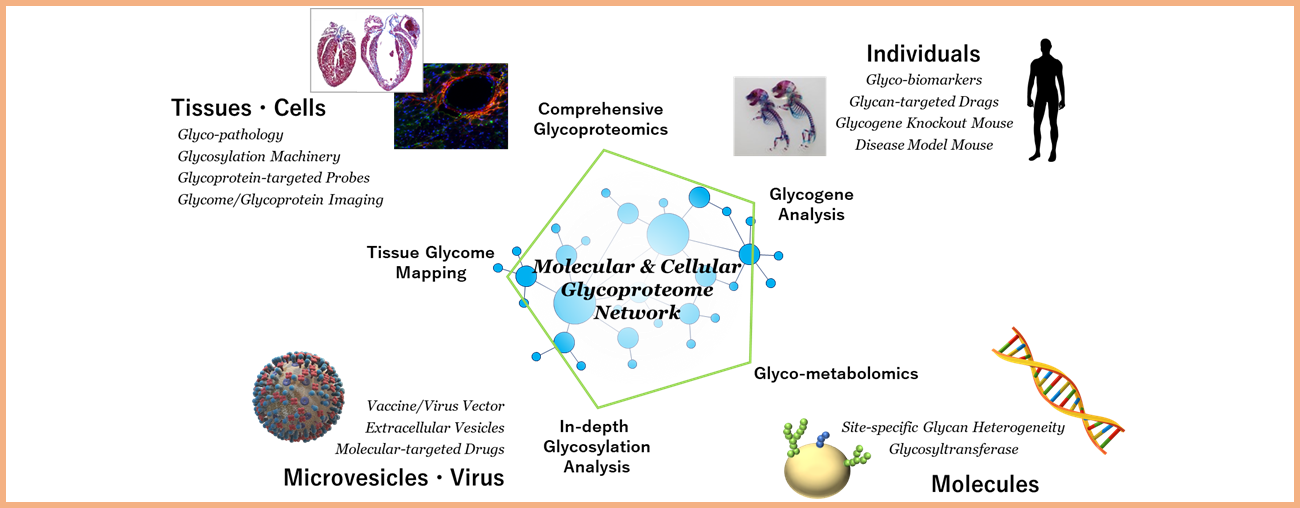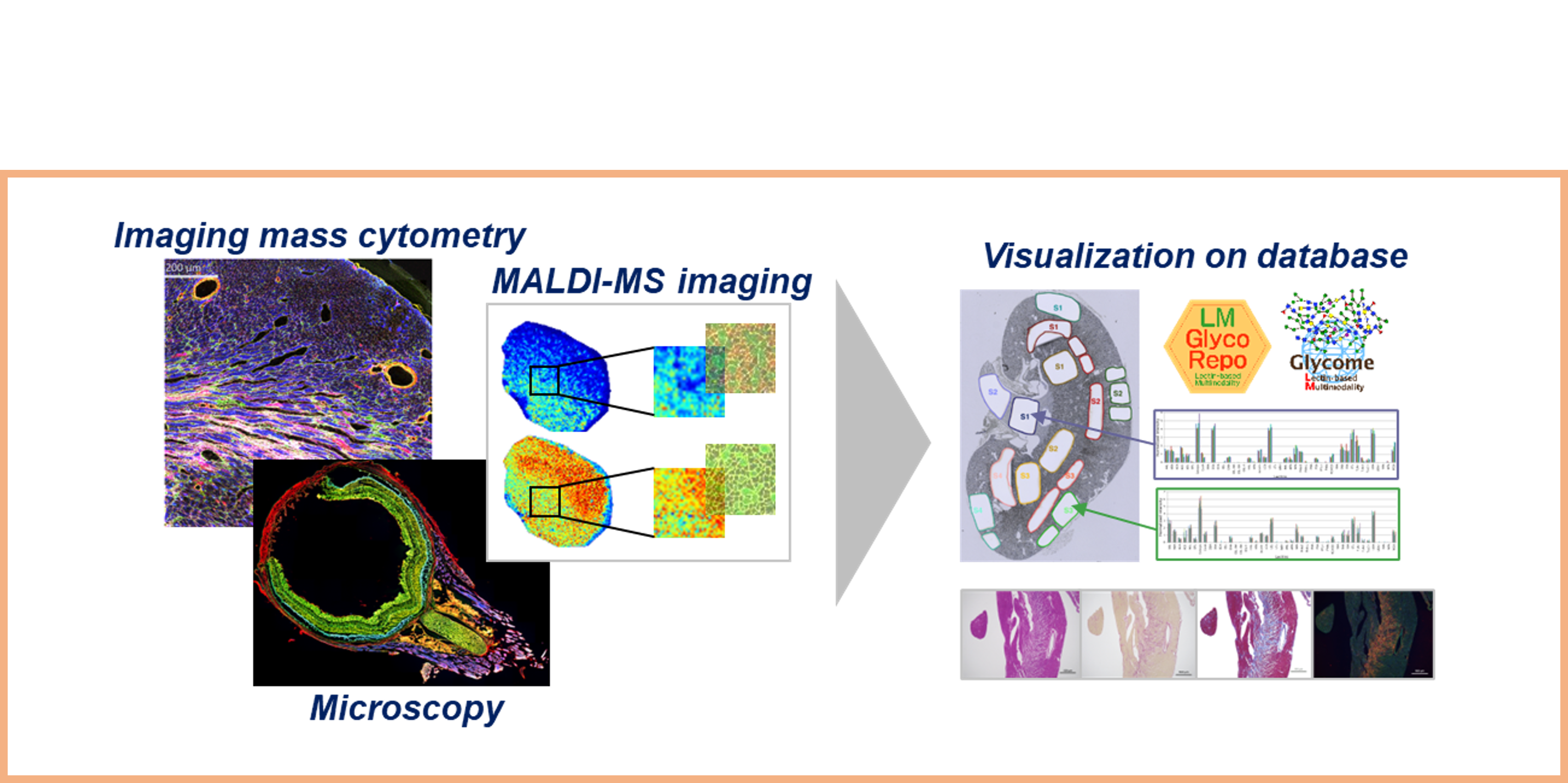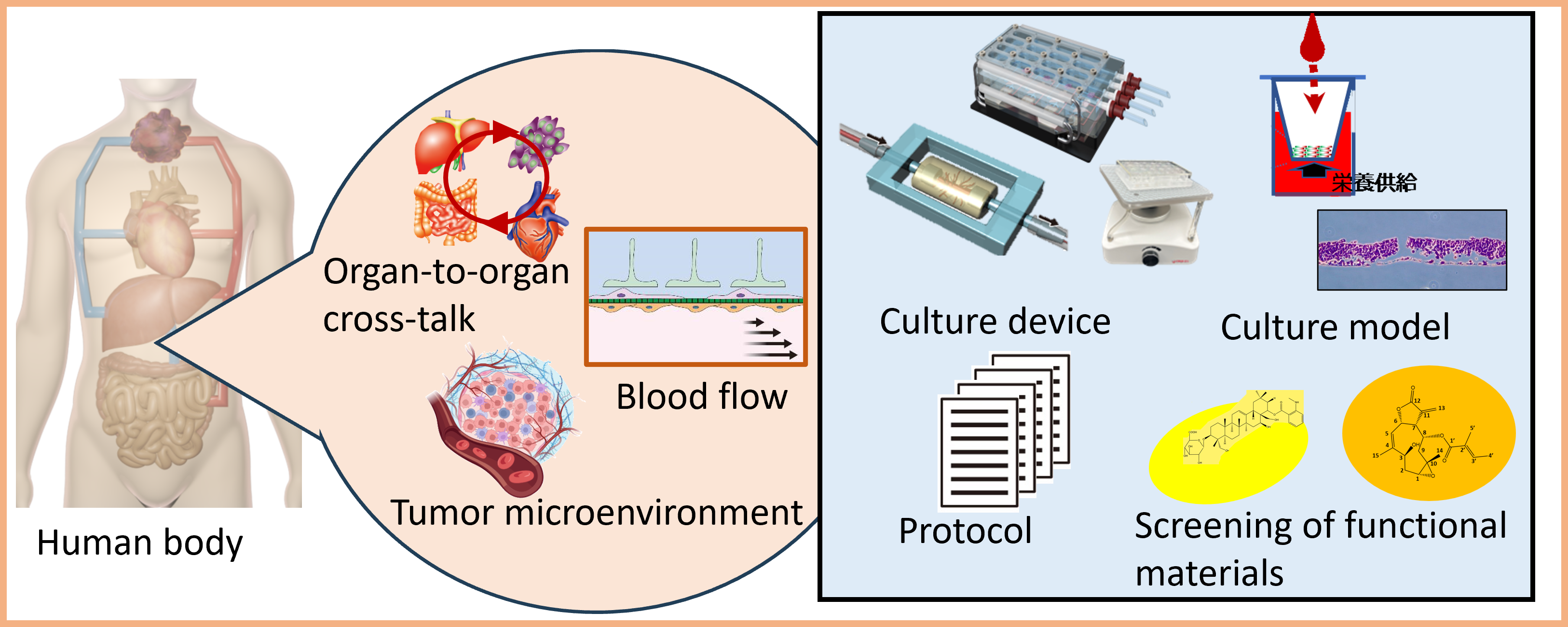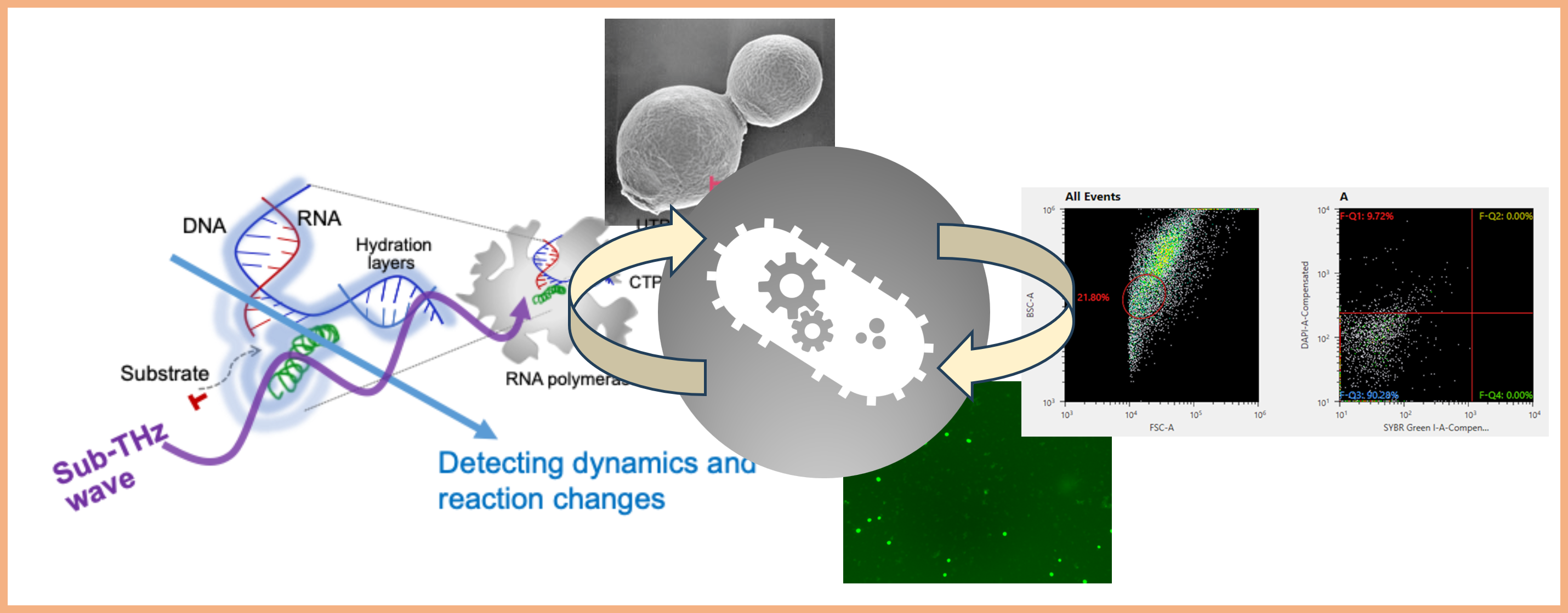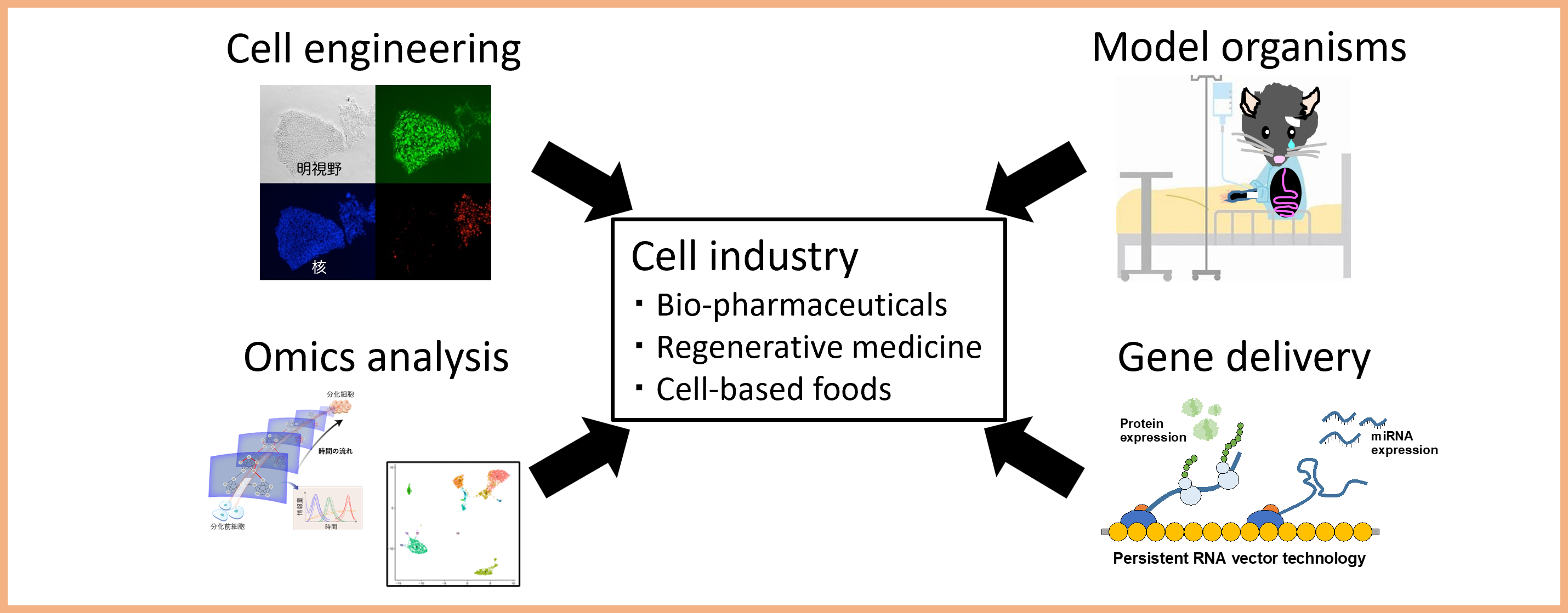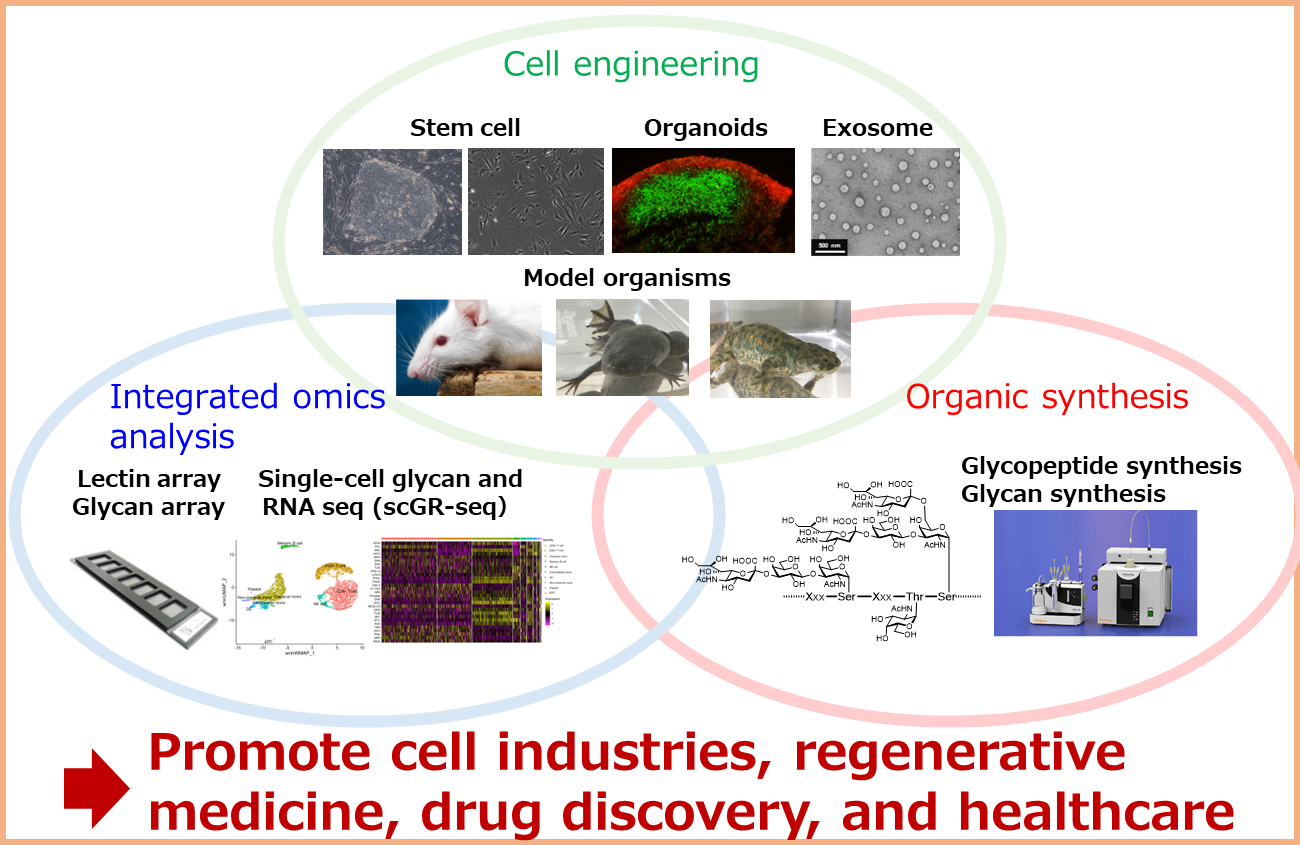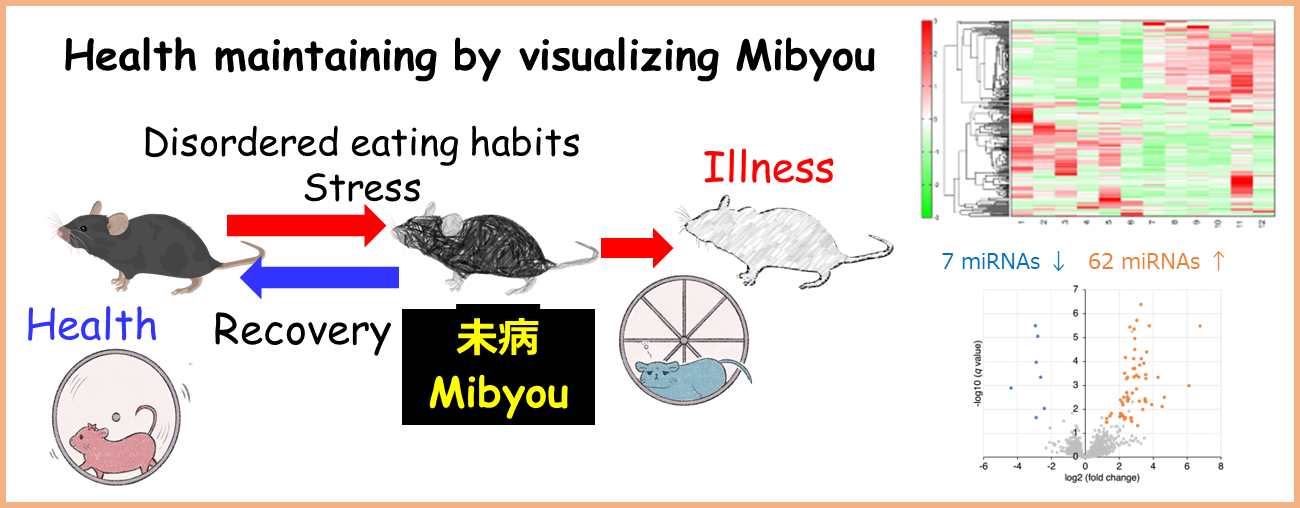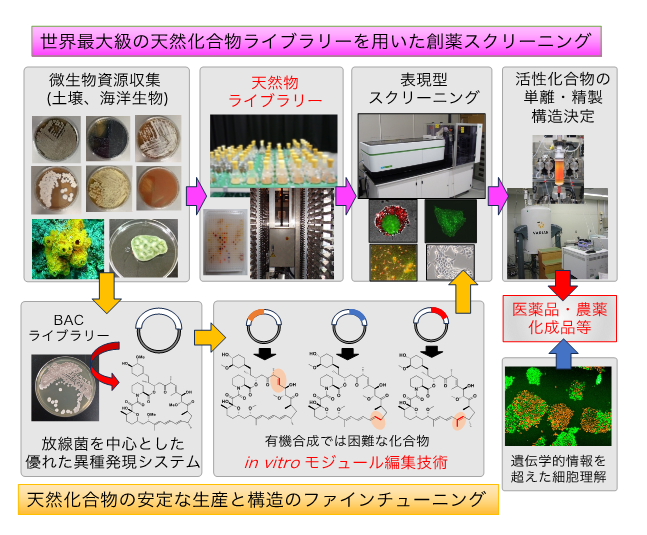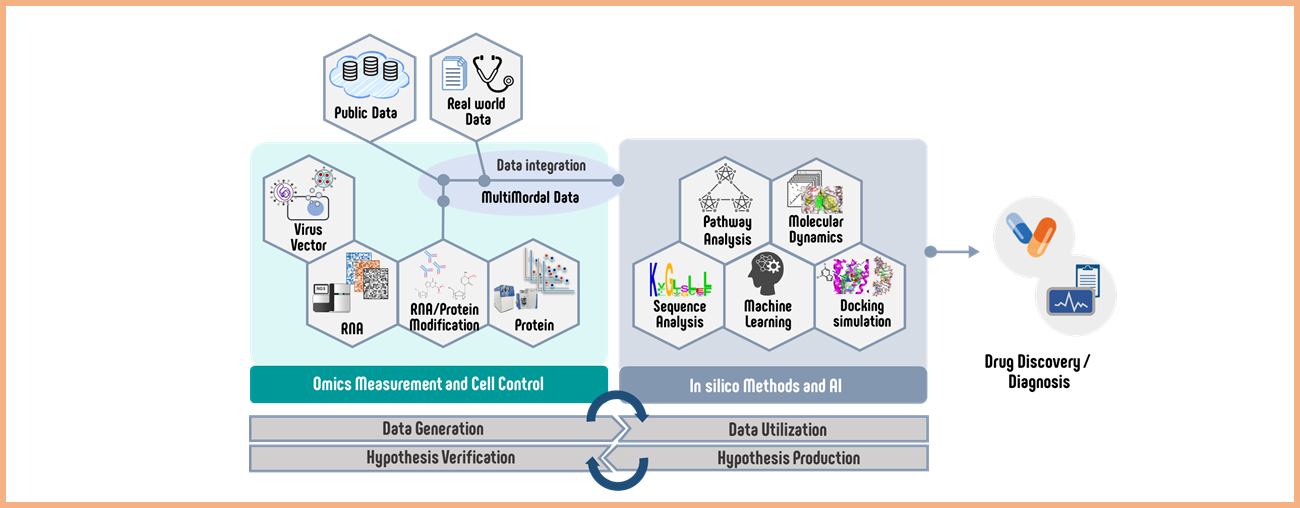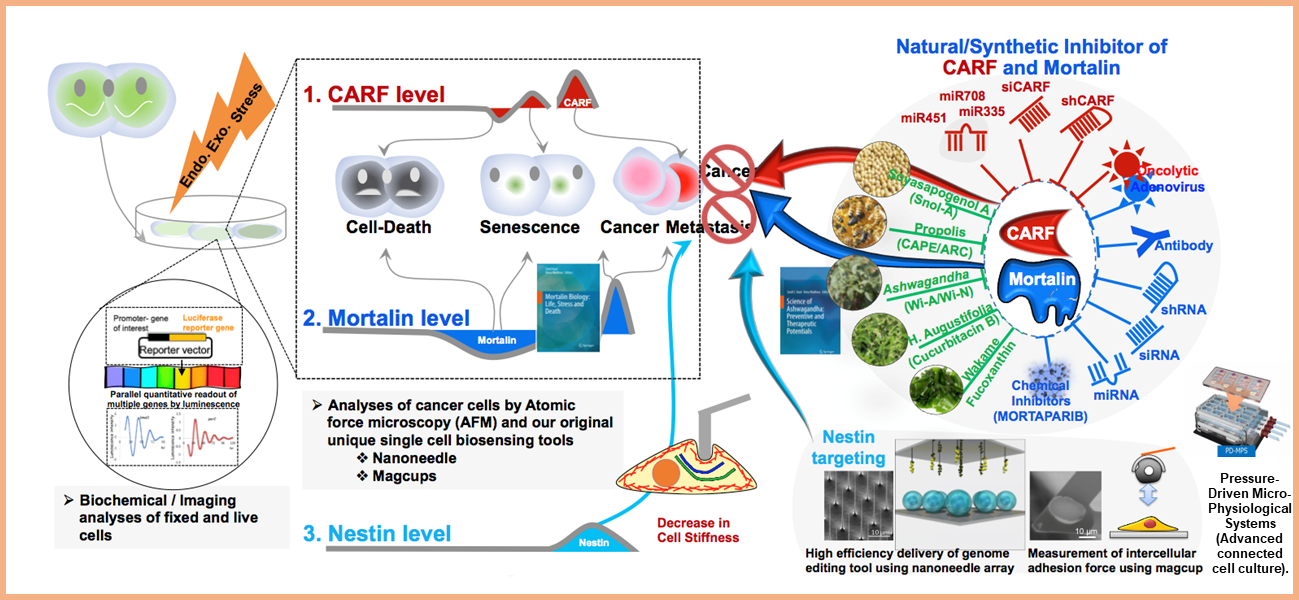Group Introduction
- Molecular and Cellular Glycoproteomics Research Group
- Multimodal Spatial Molecular Imaging Research Group
- Cell Regulation Materials Research Group
- Microphysiological System Research Group
- Cell Function Design Research Group
- Cell Dynamics System Research Group
- Multicellular System Regulation Research Group
- Cellular Presymptomatic Engineering Research Group
- Biosynthetic Systems Diversity Research Group
- Biological Data Science Research Group
- AIST-INDIA Diverse Assets & Applications International Laboratory
- Attached to Research Institute
